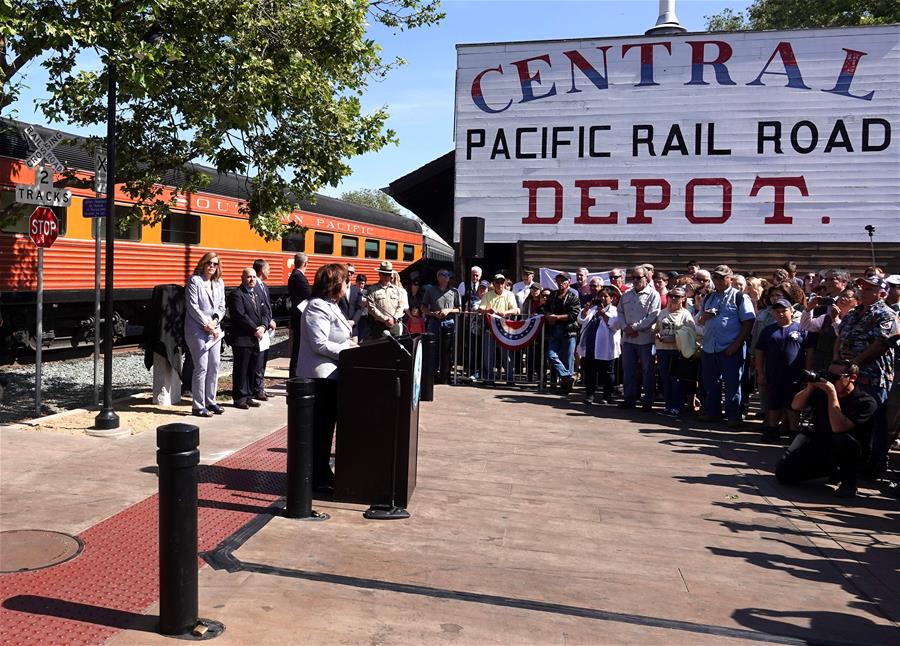Chinese railroad workers' legacy remembered in San Francisco
The city of San Francisco has declared May 10 as Transcontinental Chinese Railroad Workers Day to honor the contributions of Chinese railroad workers who helped build the Transcontinental Railroad in the 1860s.
The city of San Francisco has declared May 10 as Transcontinental Chinese Railroad Workers Day to honor the contributions of Chinese railroad workers who helped build the Transcontinental Railroad in the 1860s.

People attend a commemorative event to celebrate the 150th anniversary of the completion of the first American Transcontinental Railroad that shaped the United States and put it on a path to economic prosperity in the California capital of Sacramento, the United States, May 8, 2019. [Photo/Xinhua]
San Francisco board of supervisors passed a resolution to honor the Chinese workers ahead of the 150th anniversary of the completion of the American Transcontinental Railroad on May 10, 1869.
"In the face of discrimination and unfair wages, Chinese railroad workers made history by building one of the United States' most innovative engineering feats, but their contribution has often been overlooked or minimized," said Norman Yee, president of San Francisco Board of Supervisors and sponsor of the resolution, on Thursday.
"By honoring the legacy of the Transcontinental Railroad workers, we inspire future generations to continue advancing the values of providing dignity, equal opportunity, civil rights, and equity to working people everywhere," he said.
In 1862, then U.S. President Abraham Lincoln signed the Pacific Railroad Act, establishing the Union Pacific Railroad to build west from Omaha, Nebraska state, and the Central Pacific Railroad to build east from Sacramento, Northern California to connect the country by rail.
The construction of the Transcontinental Railroad, originally known as the Pacific Railroad, took nearly seven years to complete and stretched nearly 2,000 miles (about 3,200 km), according to the resolution.
The construction of the railroad relied heavily on human labor, requiring thousands of workers. Historians believed that between 12,000 and 20,000 Chinese workers were recruited to the workforce.
The Chinese workers comprised 80 percent of the railroad workforce in the west and almost 90 percent of the Central Pacific's entire workforce by 1867, and were considered indispensable for their work ethic and endurance, says the resolution.
"The Chinese railroad workers took on the lowliest and most dangerous tasks, were paid 30 percent less than their white co-workers with no provision for housing, unlike their white counterparts," said Yee.
After enduring mistreatment and harsh working conditions, the Chinese workers organized a strike against the Central Pacific Railroad demanding higher wages and shorter workdays, marking one of the era's largest labor strikes against any employer.
It was only in recent years that the contributions of Chinese railroad workers have been recognized. In 2014, the U.S. Department of Labor inducted the Chinese railroad workers into the Labor Hall of Honor for their contributions and their organized efforts to fight for fair wages and safe working conditions.
In 2017, California declared every May 10 as California Chinese Railroad Workers Memorial Day.

